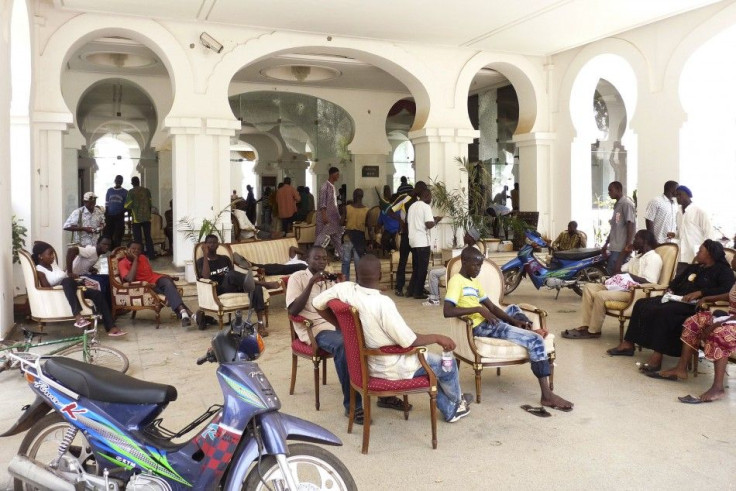Mali: Interim President Traore Attacked By Protesters Following Agreement With Military Junta, ECOWAS

Dioncounda Traore, the interim president of Mali, was beaten by protesters on Monday in his own office in the capital city of Bamako.
The violent incident follows Sunday's announcement that Traore would stay on as interim president to oversee Mali's transition back to civilian rule after a coup by a military junta. The agreement was brokered by the Economic Community of West African States (ECOWAS) and agreed to by junta leaders.
A source in the presidency told Agence France-Presse that Traore was driven to a hospital following Monday's violence.
The protesters, who were many, evaded security forces. ... They found him in his office. He was beaten but his life is not in danger, said the source.
Sunday's ECOWAS agreement set up a 12-month period during which Traore would continue to serve as interim president. Junta leader Captain Amadou Sanogo, who signed the agreement, had previously spoken in favor of a national council to select a different interim leader.
In exchange for agreeing to Traore's continued leadership, Sanogo was granted status as an ex-head of state, which entitles him to a lifelong salary, state-sponsored security, housing and a continuing influence in national politics.
The announcement of the ECOWAS agreement triggered protests in the streets of Bamako. Citizens who supported the junta shouted Down with ECOWAS and Down with Dioncounda. They stormed the presidential palace before rushing an adjoining administrative building in search of Traore, according to AP.
On Monday afternoon, many of those protesters occupied the presidential palace for several hours as security forces looked on, reports Reuters. Others blocked traffic in the streets and tore apart images of the interim leader.
Some of these protesters said they had preferred Sanogo to lead the transitional government; others accused Sanogo of treason for signing the ECOWAS agreement.
Meanwhile, northern Mali remains under the control of the Tuaregs, a historically nomadic group from the Sahel region of North Africa. It was the Tuareg incursion that first sparked Mali's current crisis; on March 22, Sanogo and a group of middle-ranking military members unexpectedly seized power from then-president Amadou Toumani Toure, voicing disappointment over his apparent weakness in the face of a Tuareg rebellion.
But the ensuing chaos in Bamako has allowed the Tuaregs to advance still further into northern Mali. They have taken possession of Kidal, Gao and Timbuktu and declared a sovereign state called Azawad.
Complicating that takeover is an influx of Islamist groups from across the Sahel, who contest the Tuaregs' hold over certain areas and who seek to enforce sharia law in the region.
The conflict has led to the widespread displacement of residents in northern Mali. On top of existing environmental threats such as drought and soil erosion, the disruptions caused by the two rebel groups have only worsened widespread hunger and poverty in the country.
Sanogo and his supporters set up a National Committee for the Re-Establishment of Democracy and the Restoration of the State, with the stated aim of returning Mali to civilian rule. But ECOWAS responded to the coup with condemnations and heavy sanctions, leading Sanogo to step down in April. Interim President Traoré took office and the sanctions were lifted, but Sanogo and his junta still wielded considerable power.
After a meeting on May 14, ECOWAS released a statement condemning the junta's continued interference with the transition in Mali, threatening military intervention to restore stability.
Sunday's agreement represented a significant compromise between the military junta and the civilian government. So far, both Amadou and Traore have failed to repel the Tuaregs' and Islamists' advances into northern Mali. Following the agreement, ECOWAS said was ready to send 3,000 troops into Mali to engage that battle, but no timeline has been set for the deployment of troops.
There is so far no indication that Monday's attack on Traore has scuttled the ECOWAS agreement, but tensions remain high as protesters continue to call for Traore's resignation.
© Copyright IBTimes 2024. All rights reserved.






















